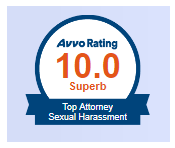Before a victim of a sexual assault, physical assault or victim of a sexual exploitation decides to pursue their assailant in a civil court of law, they should have a detailed conference with an attorney who is well-versed in crime victim law and inadequate security litigation. Crime victim cases are much different than simple automobile collision injury cases. Most “personal injury” lawyers are not experienced nor do they have the training or experience to properly investigate these “quasi-criminal” cases. The truth is that most attorneys do not understand how to prosecute these “crime victim” cases. There are only a handful of lawyers in the United States who understand how to try crime victim and sexual exploitation cases and who are sensitive to the emotional and physical trauma that these victims suffer. Lawyers, like me, who have a background in law enforcement and criminal prosecution, usually have more experience in how to handle these civil tort cases that civil attorneys.
Meeting with an experienced attorney can help the crime victim understand the process through the civil justice system, determine whether there is a viable cause of action, and most importantly, whether there is a reasonable chance of actually recovering money damages against a perpetrator. An experienced attorney should be able to discuss applicable statutes of limitation, which bar civil lawsuits from being pursued if a plaintiff delays too long after the cause of action accrues. Most states have limitation periods on civil and criminal actions. These periods of time are referred to as “Statutes of Limitation.” They govern the amount of time that can pass before a crime or civil action can be prosecuted. For example, personal injury car accident cases in Texas must be filed within two years from the date of the offense. However, sexual assault cases in Texas have a five year limitation period.
It is important to note that when dealing with cases involving children, most states’ limitation periods do not begin to run until the child turns 18 years of age and becomes a legal adult. This is true in Texas. If the sexual assault was committed against a child, in Texas, that child’s five year limitation clock does not begin to run until they turn 18 years of age-the age of adulthood. Thus, they would be able to pursue a claim against the perpetrator until their 23rd birthday. Some states also stop the limitation period clock if the perpetrator left the state where the offense occurred. The clock doesn’t start running until the perpetrator returns to the state.
Texas, like several other states, has a specific statute that makes it illegal for mental health professional (therapists, family counselors, psychologists, psychiatrists, and clergy) providers to have sexual relations with their clients. This was in response to the growing number of cases involving doctors, psychiatrists, family counselors, and clergy violating their positions of trust in the community, crossing boundaries, and sexually exploiting their patients and clients. These cases include sexual assault and consensual sexual relations between therapist/doctor and patient and may include exploitation of former patients.
Kevin Madison is an Austin-based attorney with over 29 years litigation experience and 25 years of experience as a judge. He is also a trained Sexual Assault Crime Victim Advocate. He was the first attorney in Austin to file a civil lawsuit against a rapist and obtained a $1.5 million judgment in 1987. His experience and training as a police officer, police chief, prosecutor and EMT set him apart from most other personal injury attorneys as an advocate for victim rights in the civil justice system. To learn more about Kevin Madison or civil remedies available to victims of sexual assault, visit www.KevinMadison.com or call (512) 708-1650.









